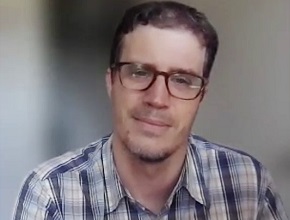Dr François Lamontagne, a professor at Université de Sherbrooke and critical care specialist and clinician-scientist in the Centre hospitalier universitaire de Sherbrooke, joins Dr Roman Jaeschke to discuss findings from a trial evaluating the use of IV vitamin C in patients with sepsis treated in the intensive care unit.
For a Publications of the Week article discussing the use of IV vitamin C in patients with sepsis, click here.
Roman Jaeschke, MD, MSc: Good morning. It’s my pleasure to [welcome you] to another [episode of] McMaster Perspective with Professor François Lamontagne, the first author of a recent publication concerning vitamin C in sepsis and septic shock. François, maybe I will ask you to tell us a few more words about yourself.
François Lamontagne, MD, MSc: Good morning, Roman, and thank you for having me. I’m François Lamontagne, I’m a McMaster [University] alumnus, I trained with you and a number of other esteemed colleagues and have very, very fond memories of my alma mater. I now work as an intensivist in Sherbrooke. I’m a professor at the Université de Sherbrooke and a clinician-scientist affiliated with the Centre hospitalier universitaire de Sherbrooke, a clinical research center.
Roman Jaeschke: It’s a pleasure to have you. As I mentioned, you are the first author of this paper. I suspect you initiated it as well. What led you to investigate vitamin C in sepsis?
François Lamontagne: Yeah, I’m the first author, I co-led the trial, to be clear, with Neill Adhikari from Sunnybrook, who is the senior/last author of the paper as well. We both initiated this. I think at that time there wasn’t a critical care meeting that didn’t headline vitamin C, so our motivation came from becoming gradually aware that vitamin C was being administered to patients. It was gradually penetrating usual care, usual practices, and both Neil and I share a genuine interest in evaluating routine care measures, perhaps above and beyond research that seeks to discover new therapies—that’s very important, but I like evaluating usual care interventions, and this felt like it was becoming one of those. Obviously, we were optimistic and keen to learn about what could become... had it been effective, something that could have been immediately applicable and could potentially improve outcomes the world over.
Roman Jaeschke: What did you find?
François Lamontagne: We found that it was not effective. Rather than improve outcomes, it increased harm. Vitamin C administered at the doses that we evaluated, administered to the patients who we enrolled, increased the risk of death or persistent need of life-sustaining therapies at 28 days—this was our primary composite outcome.
Roman Jaeschke: I was clearly impressed with the dose. I believe you used a few grams per day intravenously, in fact.
François Lamontagne: Yeah, it was a high dose. We had reproduced the dose that was previously [used]. There had been a previous trial, a sort of a dose-finding trial, and that was the dose that seemed associated with the most favorable outcomes. And it was indeed quite high. It was 50 mg/kg per dose administered 4 times per day for 4 days. That amounts to... [It's] quite a significant amount.
Roman Jaeschke: Well, my family always tells me to take a lot of oral vitamin C during the time of common cold and I know that it’s not easy to administer this amount [laugh].
Is it the end of vitamin C in sepsis? How does it fit with our overall knowledge?
François Lamontagne: Yeah, I’m sort of split here, I’m of two minds, and I guess the easy answer is that I don’t know. As one of the lead investigators, we, Neal and I, certainly stand by our results. We trust the results that we obtained and I would be extremely reluctant to... I definitely think vitamin C shouldn’t be administered outside the research setting. Now, in the context of a very rigorous clinical trial, for example, has this single study answered every question? Probably not. I also have an interest in systematic reviews and guidelines, and seldom does one trial, particularly of that size, answer everything. There could be remaining uncertainties, but I think even in the context of clinical research, one would have to be very careful. We certainly were surprised and a little bit distraught that we found harm. It just teaches us that nothing is entirely benign, right? Everything has to be measured and evaluated carefully.
Roman Jaeschke: So, bottom line, it’s not in your clinical practice today, it’s not in my clinical practice, and we believe it should not be in any regular or common clinical practice.
François, you are involved in sepsis and I’m involved in sepsis for decades now—I’m a little longer than you. Other than the [infection] source control, antibiotics, fluids, what can we offer in people with sepsis/septic shock? Maybe not antibiotics—antimicrobials, if available. Anything else?
François Lamontagne: Maybe I’ll just dodge that question again and say my passion is to evaluate what we do routinely and I think we underappreciate that what we do routinely often isn’t really beneficial and could be harmful, and could be wasted energy and resources. So even those things that you’ve just listed, I don’t feel very confident that they’re definitely beneficial or when they are, that we know how to use them in a way that’s really beneficial. I know your friend and colleague who you work with, Bram [Rochwerg]… You mentioned fluids and Bram has been investigating which type of fluid and how much [should be given]. And even with antibiotics, right?—how long you treat. We’ve got a number of programs that are ongoing and I think there should be more because even those things are... My passion is really that this type of research should be seamlessly embedded in clinical practice, because we have a lot to learn even about those.
And then what else... I know there’s certainly been a lot of research about something like steroids and, on balance, it seems like it doesn’t seem harmful, could be beneficial. I tend to use steroids because we have a long history, we know their side effect profile at the doses that we use them for sepsis. I doubt they would be tremendously harmful in the Canadian setting. Whether they’re as safe in an area with a lot more endemic opportunistic infections, it remains to be seen. They haven’t been studied as well in other settings.
But you’re right, there are few things that we can feel very, very confident that it would be... I’m not sure what... I really like vasopressors, vasopressor research, which is another one of those interventions that’s just used without asking questions. And I am really not sure that they’re beneficial. I don’t know [whether] they’ve ever been proven to work. I don’t know that. And I wonder sometimes if just sustaining organs that are failing, intubating, dialyzing until things improve... Perhaps that’s sometimes the best that we can do and that we have to offer. And good supportive care goes a long way.
Roman Jaeschke: François, it’s interesting. I’m reflecting on the fact that in the past we hoped that if we only have enough clinical trials and enough literature searches, we will know the answers to old questions. And it seems that the more we know, the more we know what we don’t know. The more we dig into interventions that we do on a day-to-day basis, the more we realize that sometimes those are on shaky grounds.
François Lamontagne: Yeah. Though we have a lot of studies, I don’t know [whether] we have the studies that we need. To deliver the studies we need, we might have to revisit our research ecosystem and how research is embedded in everyday care.
Roman Jaeschke: Okay. Well, in the meantime, we will not be using vitamin C in sepsis. François, thank you very much. Thank you very much, Professor Lamontagne.
François Lamontagne: Thank you, Roman. It’s an honor and pleasure.
Roman Jaeschke: Thanks. Goodbye.
François Lamontagne: Bye.
 English
English
 Español
Español
 українська
українська











